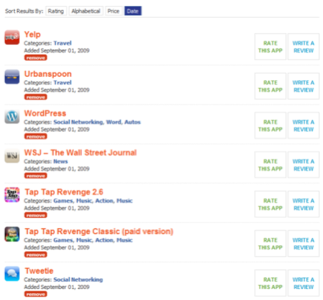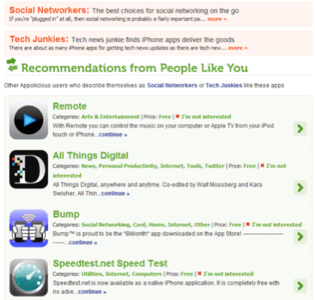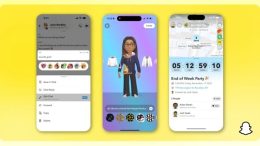Looking for new iPhone apps? With a marketplace filled with over 65,000 applications (give or take), finding the best ones via iTunes has become an exercise in futility. With the next big Apple announcement a little over a week away, we still have high hopes that Apple will introduce a version of their iTunes software that makes it easier to find new apps which appeal to you. In the meantime however, we turn to the various startups addressing this issue in their own unique ways. The latest company among them to debut an app discovery service is Appolicious, a new social network and app sharing site which reminds us of the social bookmarking mainstay Delicious.

To date, we’ve seen a plethora of app discovery services appear including app tracking sites like Apptism, app discovery tools like AppBeacon (our coverage), Digg clones like Freshapps (our coverage), app recommendation services like 16apps, and even “apps for sharing apps” like Appsfire (our coverage). Despite the number of offerings available, there are those out there who are convinced that the problem has not yet been solved. One of those folks is Al Warms, an entrepreneur known best for selling BuzzTracker to Yahoo in 2007. He has created a new service called Appolicious which aims to make app sharing and discovery a breeze.
About Appolicious
According to Kara Swisher of All Things Digital, Appolicious is “a combination of Twitter, Facebook and Yahoo, with some Yelp sprinkled in…” but we think the new recommendation service is, as the name implies, closer to that of social bookmarking tool Delicious. As with Delicious, you have an account where you save your items – except here, instead of links, you’re saving apps. Also like Delicious, you have the opportunity to “follow” other people whose items you enjoy. Similar to Delicious’s “my network” feature, this will highlight people like you who save and share items that fit your interests. Again, we’re talking apps not links.
The basic concept behind this idea is to mirror the real world of friend recommendations. You know, when your iPhone-carrying buddy says “hey, have you seen this cool new app?”
How it Works
Of course, in order for you to share your apps with others, you first have to import them into Appolicious. If you want to be more selective, you can manually type in the names of the apps you own, but the easiest way to get started is to do an app import.
The App Library Builder is a Java-based tool which scans your iTunes library for your owned applications. Getting to the tool is a bit harder than it should be we think, since it’s not prominently featured on the main Appolicious homepage. However, from your “edit profile” page, clicking through on the link “view my full app library” from the blue box at the bottom of the page will get you going.
Once started, the app detects the location of your iTunes App folder then presents a list of all your apps. Checkboxes are provided so you can check and uncheck the apps you want to import. Unlike our experience with Appsfire, Appolicious accurately detected our applications…all of them (save for jailbreak apps). The apps are then added to your library.

Once imported, you have the opportunity to rate them or write a review, although these steps aren’t really all that necessary. By simply owning an application and sharing it on the service, that in and of itself is a recommendation of sorts.
Finding Friends Needs Work
To get the best recommendations, you’ll need to import some friends to Appolicious. Unfortunately, the service only allows you to import friends from Gmail or Yahoo! mail by logging into your account using your username and password. Despite featuring a Facebook Connect option for login to the site, there doesn’t appear to be a Facebook friend import. Neither is there a way to import friends from other social services like Twitter, for example.
At the very least, you would think that when you land on a user’s profile page there would be an option to add them as a friend, but even that isn’t an option. Sadly, without better friend finding/following options, the entire service’s concept could easily fail. We hope they’ll address this issue in a future update.
Recommendations
For now, we can overlook the poor implementation of friending features because Appolicious itself serves up its own recommendations. Plus, by categorizing your “app personality” in your profile (I’m a “social networker” and “tech junkie”), you’re offered recommendations from people like you – that is, those who have categorized themselves in the same way.

Conclusion: We’ll Give it a Shot
Overall, though, we like the concept of a social network such as this. With a much better import process than Appsfire, it’s already off to a good start. And the Delicious model is a great one to mimic for a recommendation service. As long as Appolicious can address the friending issues mentioned above, it could really be a contender for the best place to discover new apps from your friends. That is, unless Apple surprises us with an App Store update that perfects app sharing and recommendations in iTunes itself.
Update: Appsfire’s latest version corrects the problems seen in the initial testing mentioned above.









